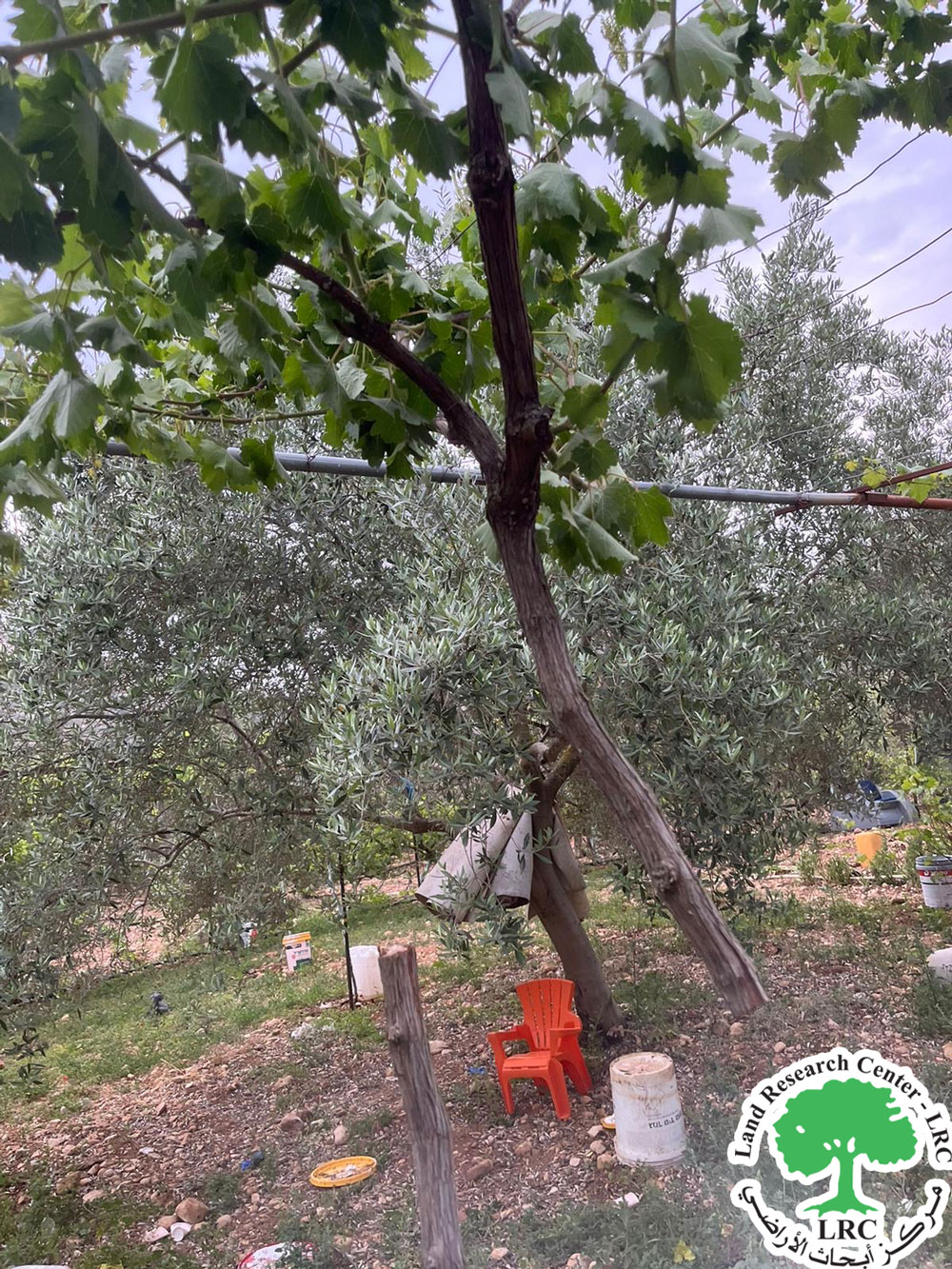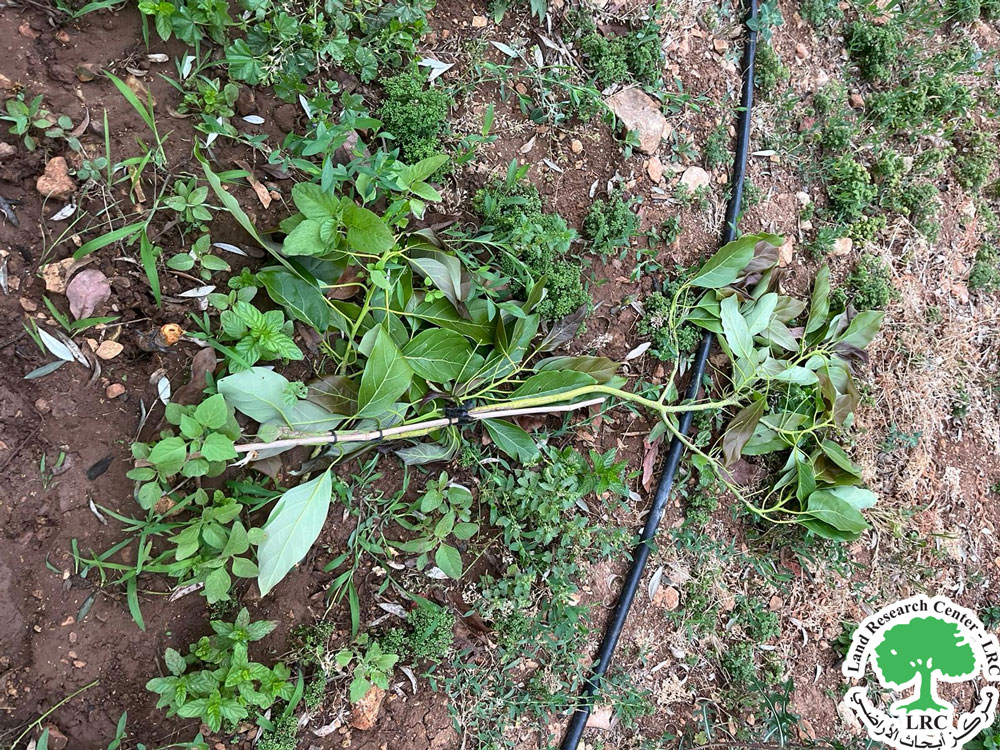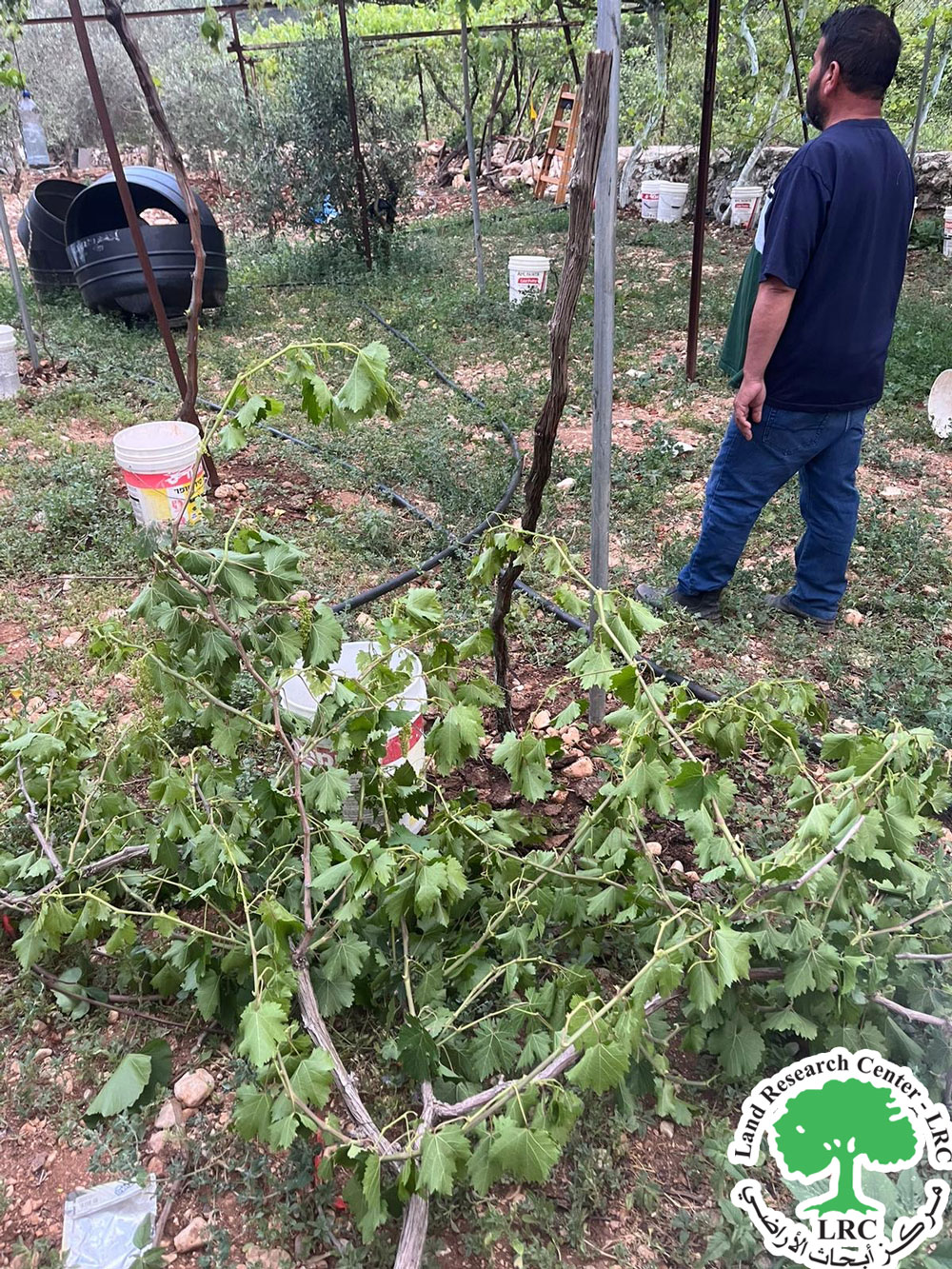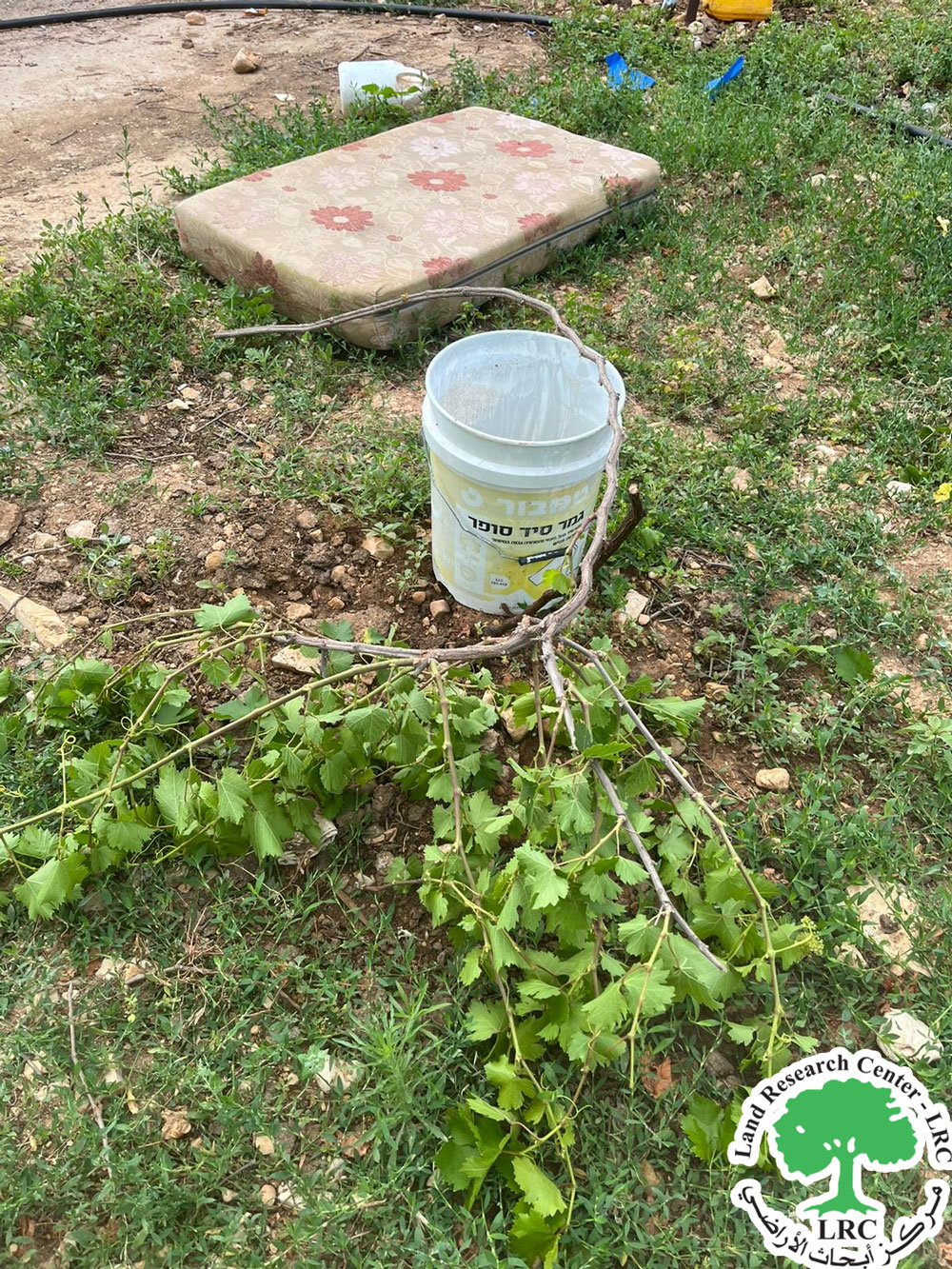2024-05-10
Nahliel colonists violate lands and trees in Beitillu village / north Ramallah
Violation: Assault on Trees and Crops
Location: Village of Beitillu, Ramallah Governorate.
Date of Violation: May 10, 2024.
Perpetrators: Settlers.
Affected Party: Farmer Mahmoud Hassan Abu Ziyada.
Description:
On the afternoon of Friday, May 10, 2024, the village of Beitillu, located north of Ramallah, witnessed an attack by settlers on the lands and crops of local residents.
In the Wadi Al-Zarqa area, northeast of the village, a group of settlers from the “Nahliel” settlement stormed a one-and-a-half-dunum agricultural plot owned by farmer Mahmoud Hassan Abu Ziyada. The land was cultivated with grapevines and avocado trees.
The settlers vandalized and destroyed 13 four-year-old olive saplings, cut down and damaged two avocado trees, as well as grapevines. Signs of sharp tools used in the attack were evident, causing significant damage to the trees.
Impacts of the Attack on Farmer Mahmoud Abu Ziyada's Trees
In addition to the above damages, the settlers also destroyed a sanitary unit on the farm, stole an electric herbicide sprayer, and took manual farming tools from the site.
The affected farmer shared the following with an LRC researcher :
"I support a family of two—my wife and me—and I rely entirely on farming as my sole source of income. I own a piece of agricultural land in the Wadi Al-Zarqa area. For years, we have suffered from repeated settler attacks on my land. In the past, settlers burned plastic agricultural greenhouses, sabotaged the irrigation network, and vandalized olive trees. I have filed several complaints with the occupation police, but to no avail. Although the occupation police visited the site multiple times to document the damage, no action has been taken so far. Last Friday, the settlers damaged my farm and destroyed some of my trees. I contacted the village council, which reached out to the relevant authorities. However, I did not file a complaint about the most recent attack because I know the occupation supports the settlers. Despite submitting complaints in the past to stop these attacks, the police have done nothing to restrain the settlers."
The Wadi Al-Zarqa area spans 7,000 dunums and has been a frequent target of settler attacks. The occupation authorities previously designated it as a "natural reserve," which has facilitated settler assaults on the land under the protection of Israeli soldiers.
About the Village of Beitillu
Beitillu is located northwest of the city of Ramallah, approximately 19 km away. It is the largest village in northwest Ramallah in terms of land area. It is bordered by Birzeit and Al-Mazra'a Al-Gharbiya to the east, the Green Line to the west, An-Nabi Saleh to the north, and Ras Karkar and Al-Janiya to the south. The village is known for its water springs and fertile lands.
Beitillu has a population of approximately 4,500 residents and is considered a youthful village due to its high percentage of young people. The main families in the village include Al-Bazzar, Ziyada, Badr, Darwish, and Al-Khatib.
The village is famous for cultivating olives, almonds, figs, and citrus fruits. More than 2,000 dunums of its land are arable, while its total area is approximately 13,419 dunums, of which 5,825 are irrigated lands and 2,500 are planted with olive trees.
Legal Commentary:
The Palestinian environment, in general, is subject to numerous environmental violations by the Israeli occupation, which blatantly disregards all international and national laws and norms concerning the protection of environmental rights. The right to live in a clean and healthy environment is an inherent human right since the dawn of time. Despite Israel’s attempts to present itself as a proponent of international environmental concerns and its signing of major environmental protection agreements—such as the Basel Convention (1989), the Rotterdam Convention (2008), the Stockholm Convention (2001), and the Ramsar Convention (1971), as well as agreements on air quality and climate—it continues to violate these treaties without accountability or oversight.
In addition to the provisions affirming the right to a clean and healthy environment for those under military occupation, as stipulated by international laws, charters, and treaties, such as the International Covenant on Economic, Social and Cultural Rights (adopted by United Nations General Assembly resolution 2200A (d-21) on December 16, 1966), Article 1, Paragraph 2 states:
"...All peoples may, for their own ends, freely dispose of their natural wealth and resources without prejudice to any obligations arising out of international economic cooperation, based upon the principle of mutual benefit, and international law. In no case may a people be deprived of its own means of subsistence..."
Undoubtedly, the violations committed by the Israeli side contravene not only international laws but also the laws of the "State of Israel" itself. Referring to this case, Israel’s Penal Code of 1977 and its amendments clearly criminalize trespassing on another’s property to commit an offense punishable by law. Article 447 states:
"Anyone who does any of the following with the intent to intimidate, insult, harass, or commit a crime, is punishable by two years' imprisonment:
(1) Enters or crosses into another's property;
(2) After entering legally, remains unlawfully on the property.
(b) If the offense is committed while carrying a firearm or cold weapon, the penalty is four years' imprisonment."
A reading of this article reveals that Israeli law criminalizes the mere act of unlawfully entering someone else's property with the intent to insult, harass, or intimidate, with a penalty of two years' imprisonment. The punishment is doubled if the offender commits a crime on the property using a weapon, sharp tool, or by damaging agricultural lands—explicitly criminalized under this article.
Accordingly, Israeli settlers flagrantly violate international treaties and even their own domestic laws. Therefore, the "Israeli judiciary" must hold settlers accountable for these actions as stipulated in their legal provisions. However, there is no legal accountability for the offenders by the Israeli judiciary.
Nevertheless, this does not negate the right of every human being on this earth to live in a clean, healthy, and safe environment, free from any violations or attacks against it.
- مشروع: حماية الحقوق البيئية الفلسطينية في مناطق "ج" SPERAC IV - GFFO
Disclaimer: The views and opinions expressed in this report are those of Land Research Center and do not necessarily reflect the views or positions of the project donor; the Norwegian Refugee Council.
إخلاء المسؤولية: الآراء ووجهات النظر الواردة في هذا التقرير هي آراء ووجهات نظر مركز أبحاث الأراضي ولا تعكس بالضرورة وجهات نظر أو مواقف الجهة المانحة للمشروع؛ المجلس النرويجي. للاجئين




